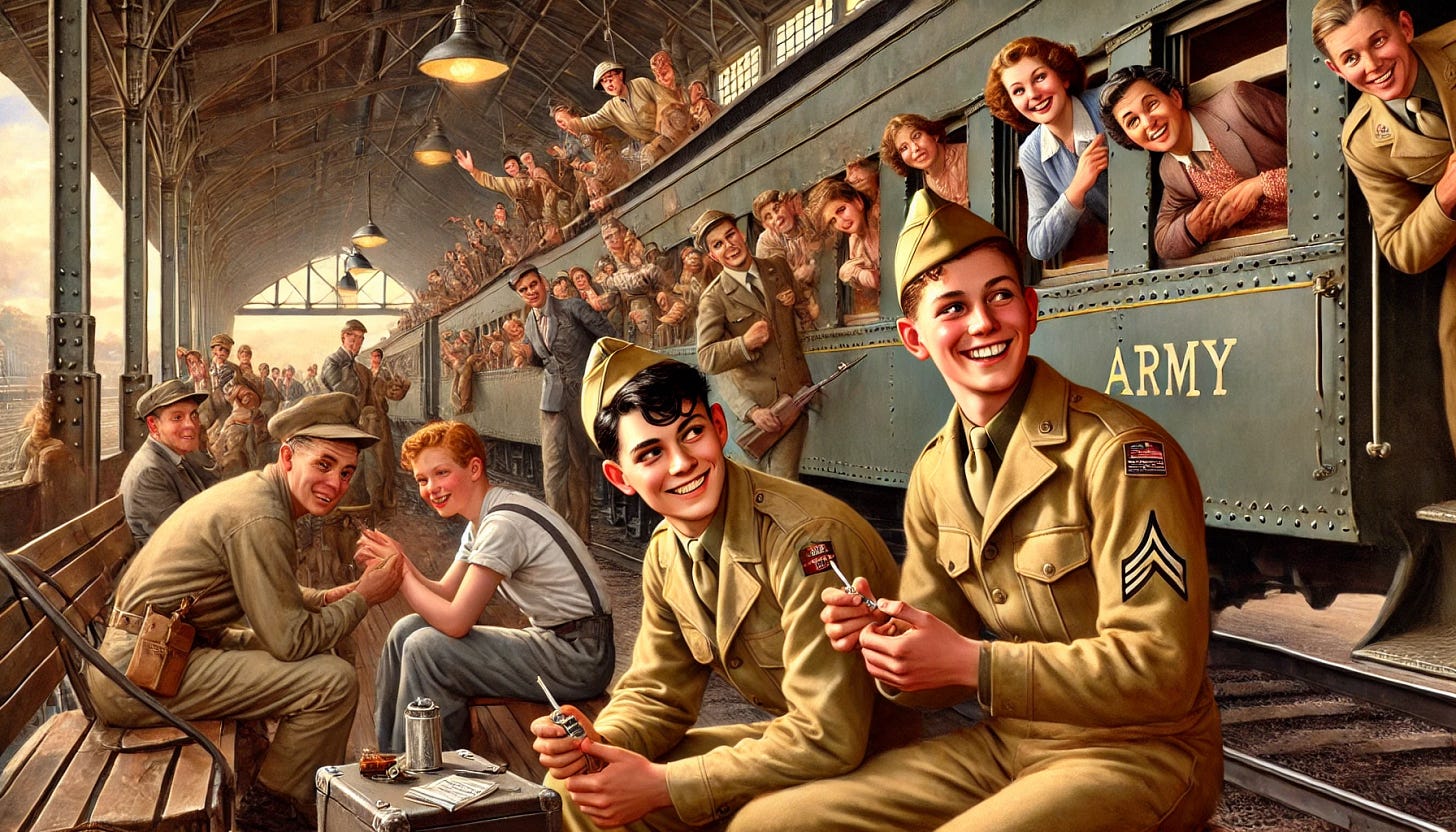Writing Excuses Homework
or, At Least Somebody Wants Me
Season 20: Episode 6: Lens 2 - Identity 1 - History and Community
Homework: Identify something from your character’s life before your story begins – write a scene in which that element of the character weighs on the scene but is never explicitly mentioned.
I decided to look a bit into Eduardo Duffy’s past. I discovered a few things…
I knew before I was handed my diploma in 1923 that I would be enlisting in the Army. It wasn’t a hard choice, really. The First World War had ended five years ago, and over fifty thousand American soldiers had been killed. Another fifty thousand had died from disease. They called it “The Great War” for some twisted reason. But it meant that our country needed new blood. Men who were ready to defend her from the baddies. That’s what we were told, anyway.
The reality is I didn’t have many options open to me. I was an okay student and a pretty good ball player. But college was not in the cards, so that meant either the factories or the military. I knew I wasn’t suited to the drudgery of a workshop, so foolishly thought I’d be better off in uniform. A few weeks later and I was shipping off to Camp Jackson in South Carolina. My mother came to see me off, wiping tears from her eyes and making me promise to be good. My father wasn’t there. He had to work and the foreman would not let him take the day off. At least that is what he told me. I said goodbye to him that morning when he left for work, and he shook my hand and said he was proud of me and to “keep my head down” and come home soon. Those were the last words I ever heard him say to me.
The train station was filled with mothers and wives and families waving to their sons, the railway cars overflowing with wild youth and testosterone, and absolutely no idea what their future would hold. As we pulled away from the station, a skinny redhead kid sat next to me and offered me a cigarette.
“Jimmy O’Malley. Nice to meet ya!” He had a friendly, freckled face and looked too young to enlist. His accent was decided not from Florida. I took the cigarette and he lit it for me with a battered silver lighter. “Where ya from? I grew up in Boston, but my pop took a job in the railyards a few years back and we moved down here.” That explained the accent.
“Eddie,” I replied, offering my hand. “Eddie Duffy. And I’m from right here in Tampa Bay. Born and raised.”
“You Mexican? No offense or anything. Just you don’t look totally American, is all I’m sayin’. Not that I care one way or another.”
I laughed. He was not the first Northerner I’d had this conversation with. “Mom’s Cuban. Dad’s from Tampa. But I’m all American, through and through.”
“Oh I didn’t mean nothin’ by it. Besides, we’re all fightin’ for the red, white, and blue, ain’t we? That’s why we’re here!” He stood up and shouted. “Right boys! God bless America!” It got the desired response, a cheer rose up and there was a lot of whooping and hollering. Jimmy sat back down, still grinning.
“So what’s your plan?”
“What do you mean,” I asked.
“Infantry? Artillery? Tanks? What do you want to specialize in?”
“Honestly I hadn’t really thought about it. Didn’t know we got to choose. Figured they’d point us at the Jerries or whoever and we shoot ‘em.”
Jimmy laughed. “You’re funny, Eddie. I like you.”
----------------------------------------------------------------------
I spent most of my basic training with Jimmy. When we finished, he got deployed to England while I went to France. We crossed paths a few times over the years, Jimmy rising to be a First Lieutenant and commanding his own platoon. He died in 1941 when things went south in Germany.



More than 60,000 non-combatant deaths.